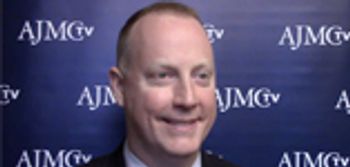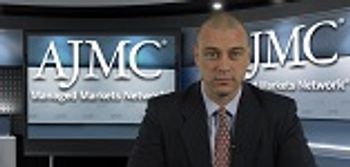
CMS, in collaboration with a working group of national organizations, has developed a set of Medical Oncology Measures to improve quality of care and avoid redundancy for providers of care.

CMS, in collaboration with a working group of national organizations, has developed a set of Medical Oncology Measures to improve quality of care and avoid redundancy for providers of care.

A noninvasive colorectal cancer screening test manufactured by Exact Sciences, which received CMS coverage within months of its FDA approval, is not included under Humana’s coverage policy

Results in the current issue of The American Journal of Managed Care show that Texas Health Resources, in collaboration with Healthways, put a care transitions program into 14 hospitals that sharply reduced readmissions through collaborative discharge planning and follow-up.

Looking at trends in economic growth, healthcare costs, and employment, researchers find that the Affordable Care Act has acted as an economic stimulus.

What we're reading, February 15, 2016: despite cuts to the program, enrollment in Medicare Advantage is up 50% over 5 years; orphan drug designations from the FDA up 22% in 2015; and Zika virus infections on the rise in Puerto Rico.

Patrick Conway, MD, explains why CMS looked toward value-based insurance design for Medicare Advantage plans.

From fighting cancer to the nation's heroin epidemic, there are items in President Obama's final budget that likely have bipartisan support even if the budget as a whole was panned on arrival.

What we're reading, February 12, 2016: the former Kentucky governor is looking to block the current governor's plans to dismantle Kynect; Senator Orrin Hatch speaks out against Medicare negotiation of drug prices; and the link between Zika and microcephaly is growing stronger.

What we're reading, February 11, 2016: Plaintiffs lose their case against cigarette manufacturer; the politics behind providing care for those infected with Zika; and of course, prescription drug prices.

What we're reading, February 10, 2016: 2 companies change how consumers purchase medicines online; CMS memo reveals the government is mulling changes to Medicare reimbursement; and Johns Hopkins will transplant HIV-positive organs to HIV-positive recipients.

A. Mark Fendrick, MD, co-editor-in-chief of The American Journal of Managed Care and director of the University of Michigan Center for Value-Based Insurance Design, testified before a Michigan senate subcommittee on the benefit of clinical nuance.

The ads will be targeted at about 7000 "influencers" including lawmakers who could control whether drug prices are regulated. Many have called for Medicare to gain the right to negotiate drug prices.

The top stories in managed care this week included increased insurer concerns over the sustainability of the Affordable Care Act's insurance exchanges, healthy policy experts convened in DC, and 2 warnings for women to heed regarding pregnancy.

Patrick Conway, MD, MSc, deputy administrator for innovation and quality and chief medical officer at CMS, describes the proposed changes to the Medicare Shared Savings Program and how they will assist accountable care organizations transitioning to tracks with more risks.

What we're reading, February 5, 2016: new legislation could expand the use of telehealth under Medicare; Massachusetts finds its physicians only screen for depression half the time; and Martin Shkreli pleads the Fifth during most of his testimony before Congress.

The latest piece in HHS’ roadmap to move the healthcare industry to value-based payments is the Accountable Health Communities model. Here are 5 things to know about how this model addresses social determinants of health.

One of the primary drivers of healthcare waste is administrative inefficiency. While the industry implements remedies and solutions with electronic prescriptions and electronic claims transfer and processing, the gorilla in the room that no one mentions is CMS.

While the costs of private Medicare Advantage plans are slightly less, on average, than traditional Medicare, broad determinations can be misleading, a new report finds.

Rising drug prices, the effect on the healthcare system, consumer push-back, and possible solutions were debated by the expert panel.

While the pace of payment reform is moving quickly, Patrick Conway, MD, MSc, deputy administrator for innovation and quality and chief medical officer at CMS, said he thinks about how to maintain that pace.

With increasing evidence of comparable efficacy and reduced toxicity of proton beam therapy, payers may have to reevaluate coverage policies.

At the annual meeting of the American Society of Hematology, physicians gathered to discuss the impact of alternate payment models on clinical practice.

CMS has proposed changes to accountable care organizations benchmarks in the Medicare Shared Savings Program, as well as a way to better facilitate the transition to performance-based risk.

Medicare Advantage beneficiaries were 1.06 times more likely to receive mammography compared with fee-for-service (FFS) beneficiaries. FFS providers were less likely to recommend mammograms to racial/ethnic groups.

The 3 prescriptions for reforming the 340B Drug Discount Program proposed by authors in the December issue of Evidence-Based Oncology would limit safety net hospitals' abilities to treat vulnerable patients.

259 Prospect Plains Rd, Bldg H
Cranbury, NJ 08512
© 2025 MJH Life Sciences®
All rights reserved.
